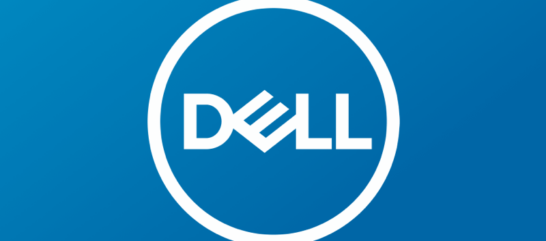It’s likely that social media plays a major role in your company’s marketing and communications strategy at this point.
So social media etiquette — what it is and why it’s important is something every company should be training and educating their employees about.
- People spend around 2 hours every day on social networks and that time is growing.
- And 81% of consumers’ purchasing choices are influenced by their friends’ posts on social media.
So brands want to leverage their employees on social media to be able to better grow their reach, strengthen their online reputation, and drive more meaningful connections with customers.
But employees might be worried about what to post and still want to seem professional. This is where having good social media etiquette in the workplace can help.
What is Social Media Etiquette?
Social media etiquette is the collection of guidelines and rules that will protect your personal and professional reputation in digital environments. This helps protect individual and the company reputation.
It’s not just about knowing which fork — or in this case, which social platform — to use. Social media etiquette helps us know how to treat others with respect online.
Do’s and Don’ts for Social Media Etiquette Best Practices:
DO show your genuine side
Trust and authenticity are highly important to customers to become interested and loyal to your brand. Sharing real, positive stories from your workplace is a great way to strengthen your employer brand.
DON’T go overboard on promotions
People are on social networks to learn from and connect with others. If you post too much about selling your product, you will come across as spammy and one-sided.
We suggest following the 80/20 rule to keep your feed balanced – 80% valuable news and insights and 20% promotional content. Remember, user-generated content is a powerful thing!
DO keep things positive and in perspective
Complaints, rants, and negative comments about competitors should be kept to a minimum on social networks. Tearing others down often backfires and takes you down with them.
And especially don’t talk negatively about your current company, which should be obvious but you’d be surprised!
DON’T be a robot
Social media content is not the place for automation. Sending the same response or comment on every post is a fast way to turn people off and limit the growth of your network.
Keep it real and personalized if you want to increase engagement.
Naturally, if you’re involved in an employee advocacy program, there might be times content copy is locked down for compliance reasons. But a good platform and strategy will ensure employees have the opportunity to contribute their thoughts and commentary.
DO interact with others beyond just posting
Social media is about being social! That means beyond sharing the latest content or other forms of media, you should consider genuinely interacting with others.
It can be a great way to show support for others, grow your own network, and build a personal brand.
DON’T overshare, understand how the platforms work
Each social platform tends to have their own “etiquette” and what is more acceptable.
There is no need to post 5+ times a day on LinkedIn. But Twitter moves more rapidly, so maybe you’d want to post a few times a day. Get to know the social platforms before posting blindly.
DO read the room and respect norms
Every major social media network has a largely unspoken understanding of what kind of content is appropriate and what might be better suited for another site. In many ways those lines are blurring as we speak, but keep in mind who your audience is and what their reception might be to your content.
Don’t forget a good social media policy
Every company has different values when it comes to communicating on social media, so this is where having a social media policy that includes social media etiquette can set expectations across an organization. Highly recommend getting one in place if you don’t have one already!
Brands that have a social media policy improve their chances for building a strong reputation online.
A great social media policy acts as a code of conduct for online interactions and also lets employees know why it’s important to the company so that they feel encouraged to participate and freely share their voice.
Be sure to include any social media etiquette guidelines that apply to your business in your social media policy to help get everyone at your business, regardless of social media savviness, on the same page.
A social media policy is a great addition to your onboarding materials so that new hires can get up to speed quickly with your company’s social mission.
Why is Social Media Etiquette Important?
As the saying goes, the internet is forever. So understanding social media etiquette will go a long way to keep your brand strong and avoid any mistakes or issues that could have an impact on your business.
Positive interactions on social media have the ability to drive brand sentiment in a better direction and make it more likely to grow followers and networks.
For heavily regulated industries, social media etiquette and policies also help protect your company against any legal issues. Sharing the proper disclaimers can reduce liability for your business, while also encouraging social interaction.
Employees may feel more comfortable sharing if they know the rules and expectations at their organization for what to post and what not to post.
And social media etiquette empowers your teams to become confident advocates for your brand and takes the guesswork and worry out of the picture.
When you have a workforce that feels comfortable amplifying brand messages and employee stories, it strengthens your employer brand and increases brand visibility.
Potential hires and customers alike can see an active and engaged company that they will be drawn to learning more about, which boosts recruiting, sales, and marketing efforts.
How EveryoneSocial is the Modern Social Media Etiquette Coach
Move over Emily Post. EveryoneSocial has this covered.
One of the biggest benefits of understanding social media etiquette is that employees feel comfortable and empowered to share more content about their company.
An employee advocacy platform like EveryoneSocial makes that process even easier by organizing content recommendations so that all employees know what is safe and encouraged to share.
EveryoneSocial allows for any team or department to upload and share company updates, blog posts, or industry news and articles in a centralized hub so that the entire organization has access to the latest and greatest for social sharing.
Remember that 80/20 rule that we talked about when it comes to promotional content? That can be easily managed in EveryoneSocial by encouraging sharing outside sources to learn from or what other brands are doing that you admire.
The platform simplifies the process of getting company content into the hands of employees and then easily share it all to their connected social networks.
This levels the playing field for employees that are more active on social media in their personal lives and those that haven’t used it as much so that everyone feels more comfortable with knowing what to post and when.
Disclosures and branded hashtags can automatically be populated to any employee posts so that policies are consistently adhered to and everyone automatically follows the social media policies your company chooses to use.
The analytics that EveryoneSocial provides also helps teams understand which content got more clicks, shares, or engagement, which is helpful data to use to improve future campaigns and shape social strategies.
If your company wants to tap into the power of employee advocacy and ensure that employees feel ready and willing to amplify brand messages using social media etiquette, EveryoneSocial is a helpful and valuable tool to achieve that goal.
















